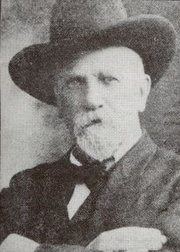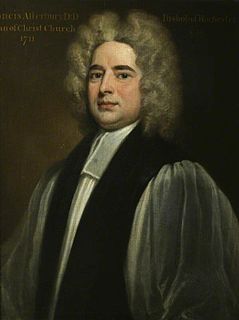A Quote by Catharine Beecher
... so large a portion of those who hold much capital, instead of using their various advantages for the greatest good of those around them, employ the chief of them for mere selfish indulgences; thus inflicting as much mischief on themselves, as results to others from their culpable neglect. A great portion of the rich seem to be acting on the principle, that the more God bestows on them, the less are they under obligation to practise any self-denial, in fulfilling his benevolent plan of raising our race to intelligence and holiness.
Quote Topics
Acting
Advantages
Any
Around
Benevolent
Capital
Chief
Denial
Employ
Fulfilling
God
Good
Great
Greatest
His
Hold
Holiness
Instead
Intelligence
Large
Less
Mere
Mischief
More
Much
Neglect
Obligation
Others
Our
Plan
Portion
Practise
Principle
Race
Raising
Results
Rich
Seem
Self
Self-Denial
Selfish
Them
Themselves
Those
Thus
Using
Various
Related Quotes
There are some arts which to those that possess them are painful, but to those that use them are helpful, a common good to laymen, but to those that practise them grievous. Of such arts there is one which the Greeks call medicine. For the medical man sees terrible sights, touches unpleasant things, and the misfortunes of others bring a harvest of sorrows that are peculiarly his; but the sick by means of the art rid themselves of the worst of evils, disease, suffering, pain and death.
The advantages of natural folly in a beautiful girl have been already set forth by the capital pen of a sister author; and to her treatment of the subject I will only add, in justice to men, that though to the larger and more trifling part of the sex, imbecility in females is a great enhancement of their personal charms, there is a portion of them too reasonable and too well informed themselves to desire anything more in woman than ignorance
While it is possible for intelligence to increase the range of benevolent impulse, and thus prompt a human being to consider the needs and rights of other than those to whom he is bound by organic and physical relationship, there are definite limits in the capacity of ordinary mortals which makes it impossible for them to grant to others what they claim for themselves.
God has lent us the earth for our life; it is a great entail. It belongs as much to those who are to come after us, and whose names are already written in the book of creation, as to us; and we have no right, by anything that we do or neglect, to involve them in unnecessary penalties, or deprive them of benefits which it was in our power to bequeath.
I'm not afraid to talk about God and it's something I have a faith in. But I feel his presence more in those really profound, quiet moments of solitude. I can't seem to get those as much around here in Nashville, so I go to seek them out. Iceland is probably the closest I ever felt to it. That place did a lot for my soul.
When the taste for physical gratifications among them has grown more rapidly than their education . . . the time will come when men are carried away and lose all self-restraint . . . . It is not necessary to do violence to such a people in order to strip them of the rights they enjoy; they themselves willingly loosen their hold. . . . they neglect their chief business which is to remain their own masters.
The possessions God allows us to have are intended for our use, not our enjoyment. Trying to squeeze something out of them that was never in them in the first place is a futile endeavor. A cow's udders, gently pressed, will yield sweet milk, nourishing and refreshing. Applying more and more pressure will not produce greater quantities of milk. We lose the good of material things by expecting too much from them. Those who try hardest to please themselves with earthly goods find the least satisfaction in them.
The one enemy in the world that America has is England. But then, England is the great land of Christian civilization, and it may not be a thing to be much wondered at that our Americans whom we send to represent us in London become in a short time somewhat civilized, and learn to love those who hate them, bless those that curse them, and do good to those that persecute and calumniate them.
Were God to show grace to all of Adam's descendants, men would at once conclude that He was righteously compelled to take them to heaven as meet compensation for allowing the human race to fall into sin. But the great God in under no obligation to any of his creatures, least of all to those who are rebels against him.
This is the state of all creatures, whether men or angels; as they make not themselves, so they enjoy nothing from themselves; if they are great, it must be only as great receivers of the gifts of God; their power can only be so much of the divine power acting in them; their wisdom can be only so much of the divine wisdom shining within them; and their light and glory, only so much of the light and glory of God shining upon them.
In the future, the great division will be between those who have trained themselves to handle these complexities and those who are overwhelmed by them -- those who can acquire skills and discipline their minds and those who are irrevocably distracted by all the media around them and can enver focus enough to learn.
Master those books you have. Read them thoroughly. Bathe in them until they saturate you. Read and reread them…digest them. Let them go into your very self. Peruse a good book several times and make notes and analyses of it. A student will find that his mental constitution is more affected by one book thoroughly mastered than by twenty books he has merely skimmed. Little learning and much pride comes from hasty reading. Some men are disabled from thinking by their putting meditation away for the sake of much reading. In reading let your motto be ‘much not many.
Modesty teaches us to speak of the ancients with respect, especially when we are not very familiar with their works. Newton, who knew them practically by heart, had the greatest respect for them, and considered them to be men of genius and superior intelligence who had carried their discoveries in every field much further than we today suspect, judging from what remains of their writings. More ancient writings have been lost than have been preserved, and perhaps our new discoveries are of less value than those that we have lost.




































